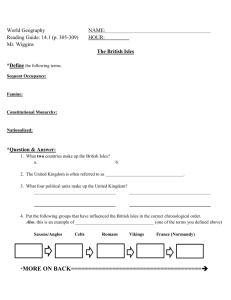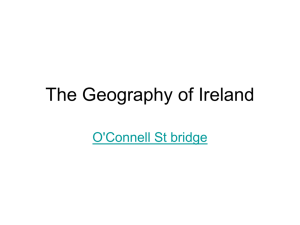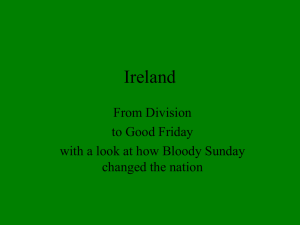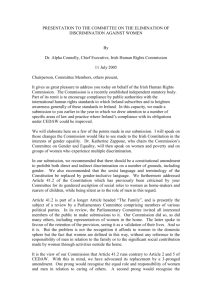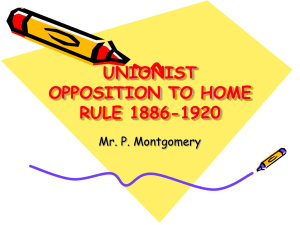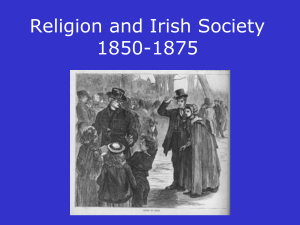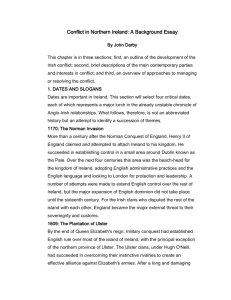Why did Partition not bring peace in the 1920`s and 1930`s
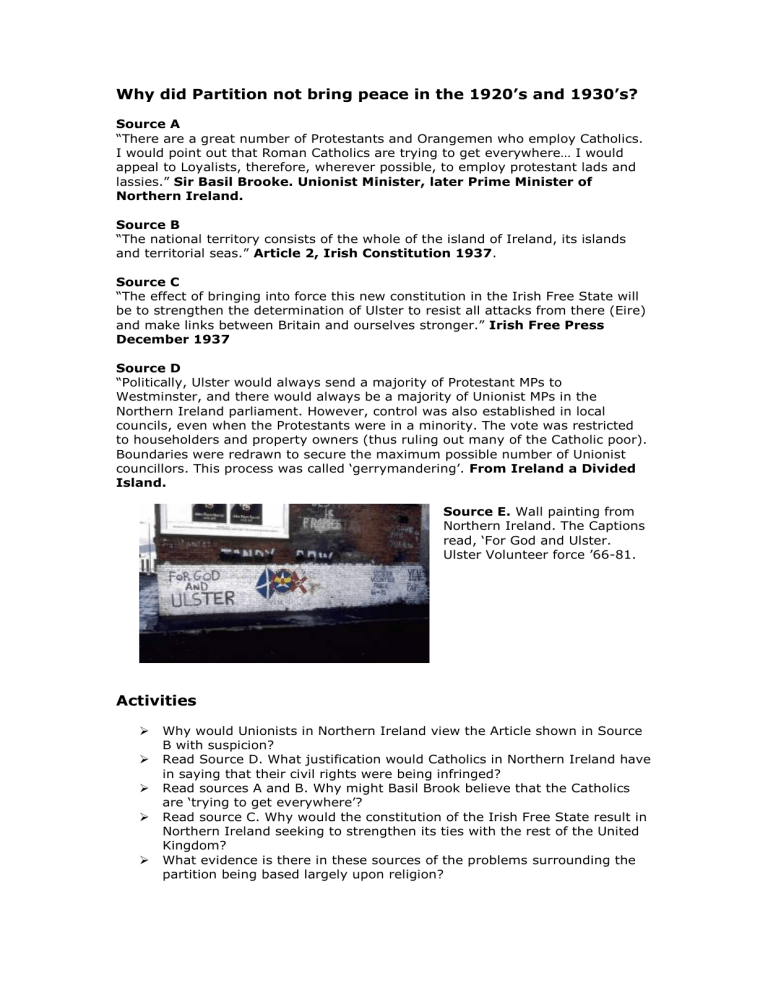
Why did Partition not bring peace in the 1920’s and 1930’s?
Source A
“There are a great number of Protestants and Orangemen who employ Catholics.
I would point out that Roman Catholics are trying to get everywhere… I would appeal to Loyalists, therefore, wherever possible, to employ protestant lads and lassies.” Sir Basil Brooke. Unionist Minister, later Prime Minister of
Northern Ireland.
Source B
“The national territory consists of the whole of the island of Ireland, its islands and territorial seas.” Article 2, Irish Constitution 1937.
Source C
“The effect of bringing into force this new constitution in the Irish Free State will be to strengthen the determination of Ulster to resist all attacks from there (Eire) and make links between Britain and ourselves stronger.” Irish Free Press
December 1937
Source D
“Politically, Ulster would always send a majority of Protestant MPs to
Westminster, and there would always be a majority of Unionist MPs in the
Northern Ireland parliament. However, control was also established in local councils, even when the Protestants were in a minority. The vote was restricted to householders and property owners (thus ruling out many of the Catholic poor).
Boundaries were redrawn to secure the maximum possible number of Unionist councillors. This process was called ‘gerrymandering’. From Ireland a Divided
Island.
Source E. Wall painting from
Northern Ireland. The Captions read, ‘For God and Ulster.
Ulster Volunteer force ’66-81.
Activities
Why would Unionists in Northern Ireland view the Article shown in Source
B with suspicion?
Read Source D. What justification would Catholics in Northern Ireland have in saying that their civil rights were being infringed?
Read sources A and B. Why might Basil Brook believe that the Catholics are ‘trying to get everywhere’?
Read source C. Why would the constitution of the Irish Free State result in
Northern Ireland seeking to strengthen its ties with the rest of the United
Kingdom?
What evidence is there in these sources of the problems surrounding the partition being based largely upon religion?
